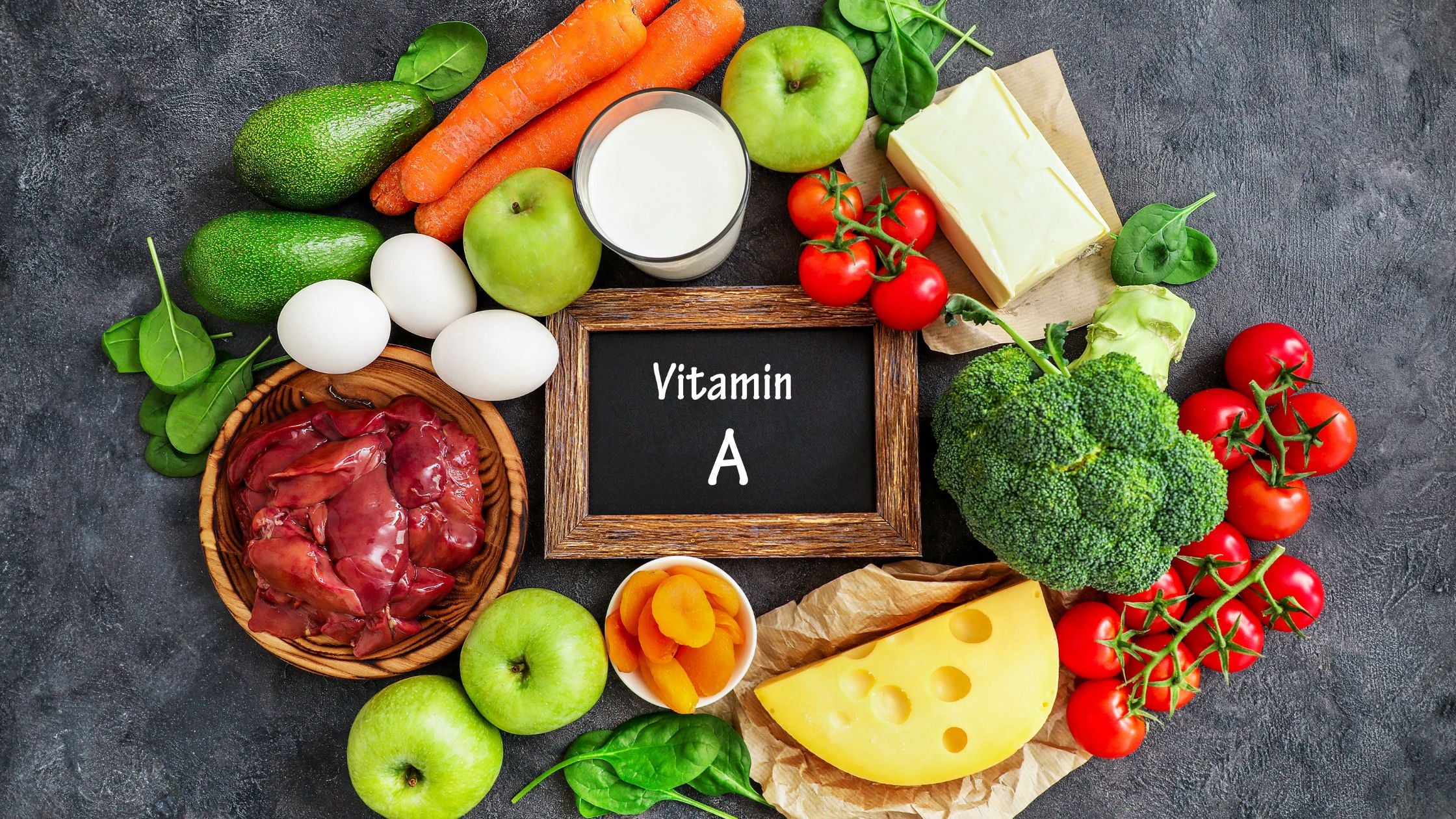Health Benefits of Vitamin A
What are the benefits of vitamin A?
Vitamin A is a fat-soluble vitamin that plays a crucial role in various bodily functions. There are two forms of vitamin A:
- Preformed vitamin A: Found in animal products such as meat, fish, poultry, and dairy products. The most common form of preformed vitamin A is retinol.
- Provitamin A carotenoids: Found in plant-based foods such as fruits and vegetables. The most common provitamin A carotenoid is beta-carotene, which the body converts into vitamin A.
Here are some key benefits of vitamin A:
- Vision: Vitamin A is essential for maintaining healthy vision, especially night vision. It is a component of rhodopsin, a protein in the eye that helps you see in low light conditions.
- Immune function: Vitamin A plays a crucial role in maintaining the health of the immune system, helping the body fight off infections and diseases.
- Skin health: Vitamin A is important for maintaining healthy skin, and it is often used in skincare products for its anti-aging and acne-fighting properties.
- Reproduction and growth: Vitamin A is important for reproduction and plays a role in the growth and development of cells and tissues.
- Antioxidant properties: Beta-carotene, a provitamin A carotenoid, has antioxidant properties that help protect cells from damage caused by free radicals.
- Bone health: Vitamin A plays a role in bone growth and development, and it may help maintain healthy bones as you age.
It’s important to consume vitamin A in appropriate amounts, as excessive intake can lead to toxicity. It’s generally recommended to get vitamin A from a balanced diet that includes a variety of foods rich in this vitamin, rather than from supplements.
Are there health risks to vitamin A?
Yes, excessive intake of vitamin A can lead to health risks. Vitamin A is a fat-soluble vitamin, which means it can be stored in the body and levels can build up over time, increasing the risk of toxicity. Here are some potential health risks associated with high levels of vitamin A:
- Acute toxicity: Ingesting a large amount of vitamin A in a short period can lead to symptoms such as nausea, vomiting, headache, dizziness, blurred vision, and muscle incoordination.
- Chronic toxicity: Regularly consuming high doses of vitamin A over a long period can lead to more serious health issues, including liver damage, bone abnormalities, and central nervous system disorders.
- Birth defects: Pregnant women should be cautious with vitamin A intake, as high levels of the vitamin can increase the risk of birth defects.
- Bone health: Excessive vitamin A intake may interfere with the balance of other vitamins and minerals in the body, such as vitamin D, calcium, and magnesium, which are important for bone health.
To avoid the risks of vitamin A toxicity, it’s important to consume this vitamin within the recommended daily intake levels. For adults, the recommended dietary allowance (RDA) for vitamin A is 700–900 micrograms per day for men and 600–700 micrograms per day for women, depending on age and life stage. It’s generally recommended to get vitamin A from a balanced diet that includes a variety of foods rich in this vitamin, rather than from supplements. If you’re considering taking vitamin A supplements, it’s a good idea to talk to a healthcare provider to determine if they are necessary for you and at what dosage.
What foods are rich in vitamin A?
Vitamin A is found in two forms in the diet: preformed vitamin A (retinol and its esterified form, retinyl ester) and provitamin A carotenoids. Here are some foods that are rich in vitamin A:
- Liver: Liver, particularly from beef, is one of the richest sources of preformed vitamin A.
- Fish Liver Oils: Fish liver oils, such as cod liver oil, are very high in vitamin A.
- Egg Yolks: Egg yolks are a good source of vitamin A.
- Dairy Products: Dairy products, such as milk, cheese, and yogurt, are sources of vitamin A.
- Fortified Foods: Some foods, such as breakfast cereals, are fortified with vitamin A.
- Orange and Yellow Vegetables: Carrots, sweet potatoes, and pumpkins are high in beta-carotene, a provitamin A carotenoid that the body converts to vitamin A.
- Leafy Green Vegetables: Spinach, kale, and other leafy greens contain beta-carotene.
- Fruits: Mangoes, cantaloupes, and apricots are good sources of beta-carotene.
- Red and Orange Bell Peppers: Bell peppers contain beta-carotene.
- Tomatoes: Tomatoes are a source of beta-carotene.
Including a variety of these foods in your diet can help ensure an adequate intake of vitamin A.




